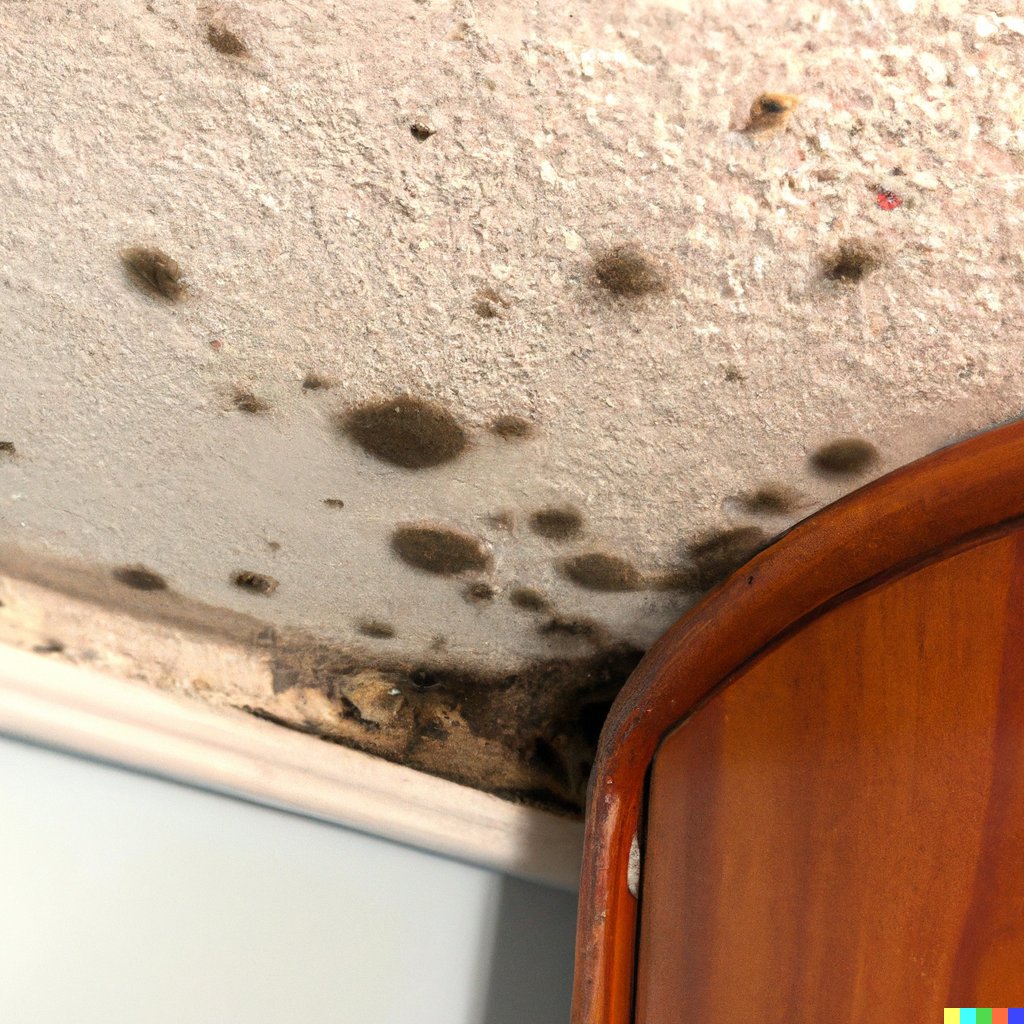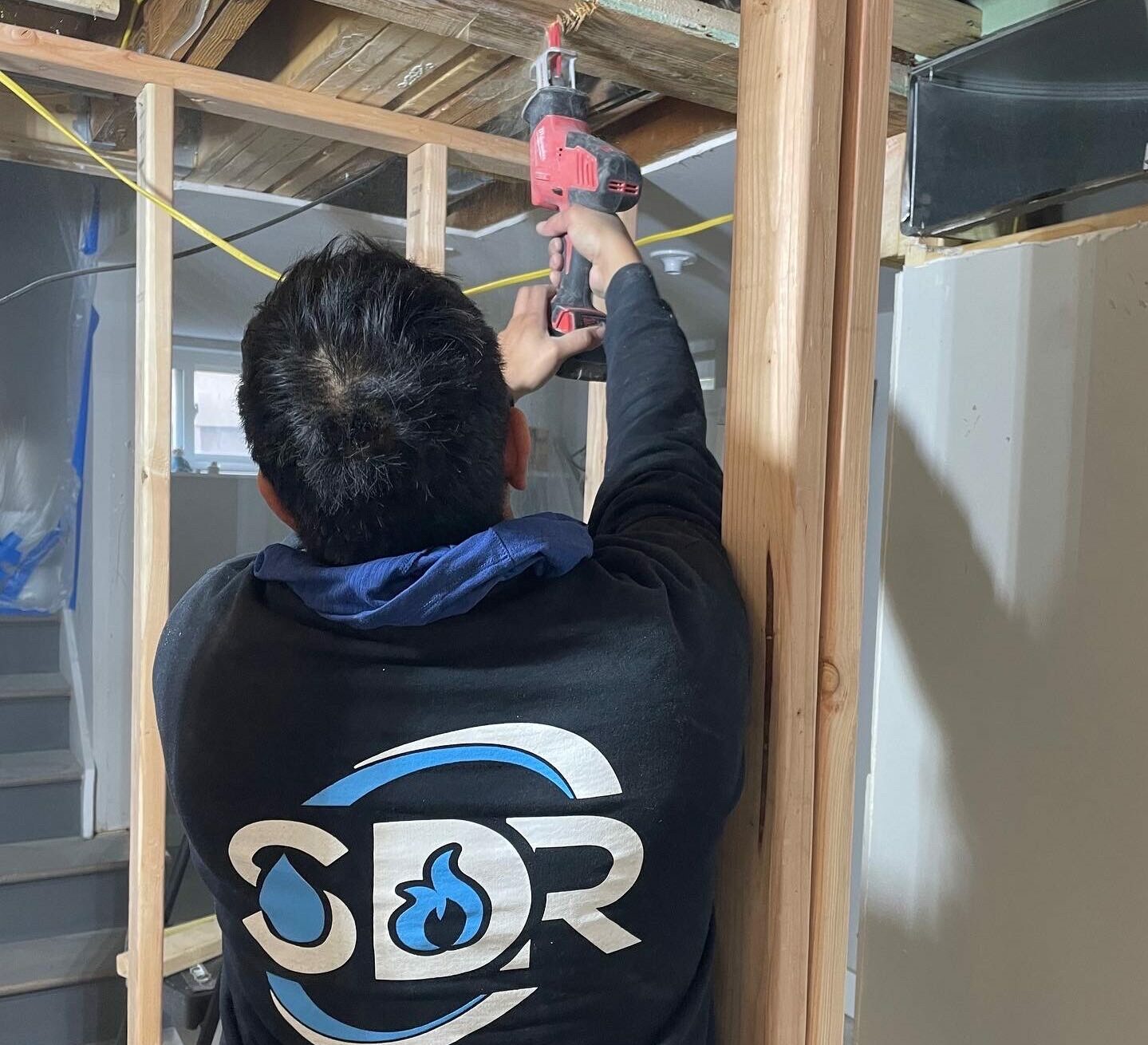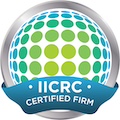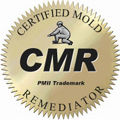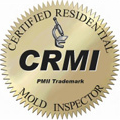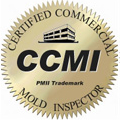When dealing with a mold problem in your home, it’s crucial to conduct a comprehensive inspection, including an air quality test, to identify the extent of the issue. Hiring a licensed inspector who works with a certified lab is highly recommended. If the mold has been confirmed, it’s important to start the remediation process immediately as mold is toxic and poses a health risk to your family. For more info read our ‘All That You Need To Know About Mold In Your Home’ article.
Mold remediation can involve area containment, anti-bacterial chemical application, air filtration, and removal or replacement of affected materials.
The severity and location of the infestation affect the complexity of the remediation process. Many customers wonder if it’s safe to stay in their homes during the process, and the answer depends on the project. In most cases, it’s possible and safe to remain in your home, but some specific situations may require you to vacate during the process.
To assist in making an informed decision regarding whether to remain in your home or vacate during the abatement process, we have created a brief guide outlining important questions you can ask yourself before initiating the remediation process at your home. Following the questions will hopefully help you come to the right conclusion. Let’s take a look –
Is anyone in my family particularly sensitive to mold?
Mold exposure can cause health problems for anyone, but some people are more susceptible to its effects than others. People with allergies, asthma, or other respiratory issues may have a more severe reaction to spores entering their lungs. The same goes for children, the elderly, and anyone who is immunocompromised.
When deciding whether to vacate during the abatement period, it’s important to consider the health risks to you and your family members. We at SDR can take great care to wear protective equipment however, depending on the amount of mold in your house and whether anyone in your family is likely to have a severe reaction to it, it may be safer for you to vacate during remediation.
What type of chemicals are used?
Different types of mold require different approaches to remediation. While some mold problems may not require any chemicals, others may require the use of specific chemicals to effectively eradicate the mold. For instance, hydrogen peroxide is a powerful cleaning agent that is often used in mold remediation, but it can produce harmful fumes that can pose a risk to your health. In such cases, it may be necessary to vacate your home during the remediation process until the chemicals have dissipated. From the other hand, there is a growing selection of organic materials that may be less harmful to humans. It’s best to consult with your contractor to understand the risk you will be exposed to.
How Long Will the Mold Remediation Process Take?
The duration of the remediation process depends on various factors, including the extent of the mold problem, its type, its location, and the methods used to remediate the mold. In general, small problems can be resolved in a few days, while more extensive problems may take several weeks. The duration of the remediation process can also be affected by other factors, such as the need for repairs or other restoration services, as well as the availability of equipment and materials. Before starting the remediation process, it is essential to discuss the timeline with your remediation professionals so that you can make appropriate arrangements if needed.
Has the HVAC system or ducts been infected?
If your HVAC system has been affected by mold, it may pose a serious concern. The HVAC system is responsible for circulating air throughout your home, and if there is mold growing inside of it, it will spread spores throughout your home, potentially making the problem worse. Therefore in these cases, it may be necessary to leave your property during the mold remediation process because it’s not always feasible to enclose the effect areas.
We hope this helps. We at Superior Damage Restoration are available to assist you navigate the mold remediation process safely and efficiently, and we offer a range of cleaning and repair services to help restore your home after damage. Remember to consult with your contractor and when it comes to mold, don’t take unnecessary risks.

